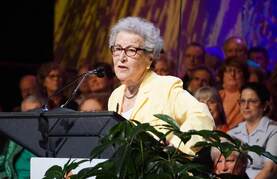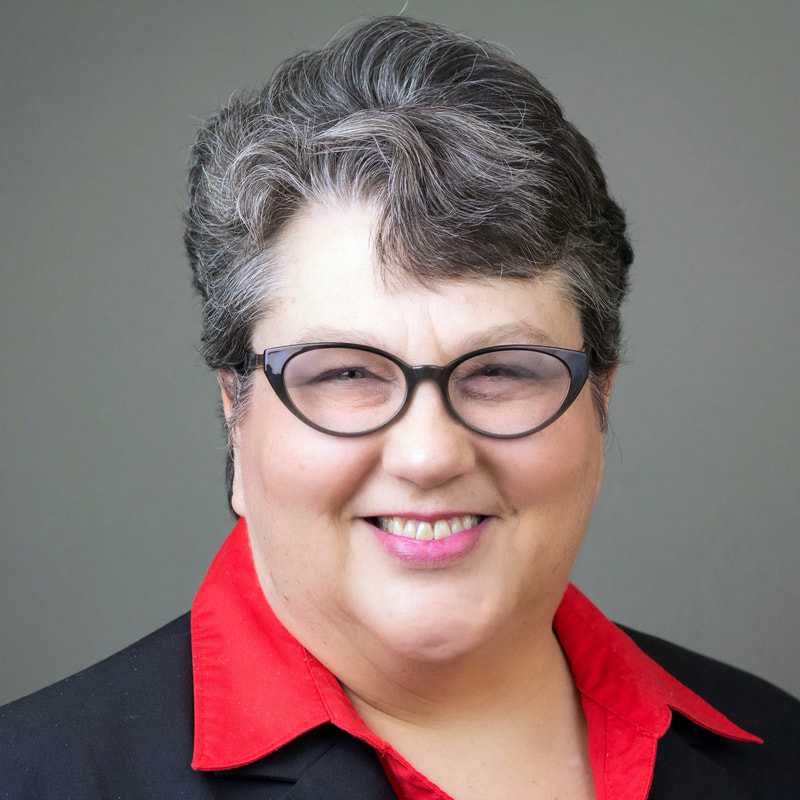
When does the story end?
Last weekend I sat and stared at my phone for two and a half hours, watching the livestream of a funeral for a woman I had never met. (No, this is NOT what funeral professionals usually do for fun!)
Denny Davidoff had been the ultimate UU church lady, active in social justice, anti-racism, and for over 50 years, almost every aspect of our shared religious association. I was just a “fan” of her work and works over the years, and wanted to hear more of her story.
The memorial service had Denny written all over it. Hand chosen clergy members, family, business colleagues, and people with whom she had done transformative work offered words of comfort and healing. There was original music performed by a choir of people who knew her, and her sons and grandchildren were exceptionally eloquent. There was much laughter, many, many tears, and a sacred atmosphere of joy and peace.
When the clergy member that she had chosen to give the homily got up, (near the end of a two and a half hour funeral!) I admit I was skeptical of what he could add to what had already been said so well (and by so many!)
His major point, surprisingly, was that Denny had not achieved many of the goals for which she had labored so arduously. Racism still exists, he pointed out. Many projects that Denny had spearheaded and championed were still works in progress. Intolerance, injustice, and unkindness are still evident in our world.
And then he revealed the good news. The good news was that Denny’s vision and goals had NOT been compromised by the inconvenient circumstance of her being dead. He pointed to the seeds of love and the roots of public service that she had sown in every corner of her life. From her beloved grandchildren with their tales of her eccentricities, to the hundreds of congregations that grew through her nurturing support, to the singular person watching on her phone who had never met Denny, but had been changed by the force of her life, we had all been part of her story.
When my mom passed away, the mantle of preserving and describing her life in her obituary and during her eulogy lay heavy on my shoulders. As anyone who has lost someone they love, I wanted to honor her in a way that would be succinct and meaningful.
Now, not everyone should have a funeral that lasts for hours, (in fact I would advise against it!), but everyone deserves to have their story told and every life’s end should be marked in some way.
In the Quaker tradition, people sit quietly in a circle, and only speak or not speak as they are moved. Some funerals are opened for people to share stories, and often a special person or two is invited to share; some funerals focus on the spiritual aspects through ancient meaningful ritual, and some are little more than a mention in the local obituaries that a very private person has died.
There can be as much dignity in a simple clink of beer bottles over the first campfire of the year in someone’s memory, as there can be at a crowded gravesite. The important thing is that the end of the life of another human should in some way be set apart consciously and with meaning. One of the privileges of helping families when a death occurs, is to be present for so many of these precious and sacred moments.
No one can sum up the entirety of a life in one ceremony, or obituary or eulogy. The important part is to recognize the significance of that person’s life in the bigger story of all our lives together. Each person’s story has value and worth.
As the wise minister at Denny's funeral told us, the bad news is that the story is unfinished. The good news is that the story never ends.
Last weekend I sat and stared at my phone for two and a half hours, watching the livestream of a funeral for a woman I had never met. (No, this is NOT what funeral professionals usually do for fun!)
Denny Davidoff had been the ultimate UU church lady, active in social justice, anti-racism, and for over 50 years, almost every aspect of our shared religious association. I was just a “fan” of her work and works over the years, and wanted to hear more of her story.
The memorial service had Denny written all over it. Hand chosen clergy members, family, business colleagues, and people with whom she had done transformative work offered words of comfort and healing. There was original music performed by a choir of people who knew her, and her sons and grandchildren were exceptionally eloquent. There was much laughter, many, many tears, and a sacred atmosphere of joy and peace.
When the clergy member that she had chosen to give the homily got up, (near the end of a two and a half hour funeral!) I admit I was skeptical of what he could add to what had already been said so well (and by so many!)
His major point, surprisingly, was that Denny had not achieved many of the goals for which she had labored so arduously. Racism still exists, he pointed out. Many projects that Denny had spearheaded and championed were still works in progress. Intolerance, injustice, and unkindness are still evident in our world.
And then he revealed the good news. The good news was that Denny’s vision and goals had NOT been compromised by the inconvenient circumstance of her being dead. He pointed to the seeds of love and the roots of public service that she had sown in every corner of her life. From her beloved grandchildren with their tales of her eccentricities, to the hundreds of congregations that grew through her nurturing support, to the singular person watching on her phone who had never met Denny, but had been changed by the force of her life, we had all been part of her story.
When my mom passed away, the mantle of preserving and describing her life in her obituary and during her eulogy lay heavy on my shoulders. As anyone who has lost someone they love, I wanted to honor her in a way that would be succinct and meaningful.
Now, not everyone should have a funeral that lasts for hours, (in fact I would advise against it!), but everyone deserves to have their story told and every life’s end should be marked in some way.
In the Quaker tradition, people sit quietly in a circle, and only speak or not speak as they are moved. Some funerals are opened for people to share stories, and often a special person or two is invited to share; some funerals focus on the spiritual aspects through ancient meaningful ritual, and some are little more than a mention in the local obituaries that a very private person has died.
There can be as much dignity in a simple clink of beer bottles over the first campfire of the year in someone’s memory, as there can be at a crowded gravesite. The important thing is that the end of the life of another human should in some way be set apart consciously and with meaning. One of the privileges of helping families when a death occurs, is to be present for so many of these precious and sacred moments.
No one can sum up the entirety of a life in one ceremony, or obituary or eulogy. The important part is to recognize the significance of that person’s life in the bigger story of all our lives together. Each person’s story has value and worth.
As the wise minister at Denny's funeral told us, the bad news is that the story is unfinished. The good news is that the story never ends.


 RSS Feed
RSS Feed


